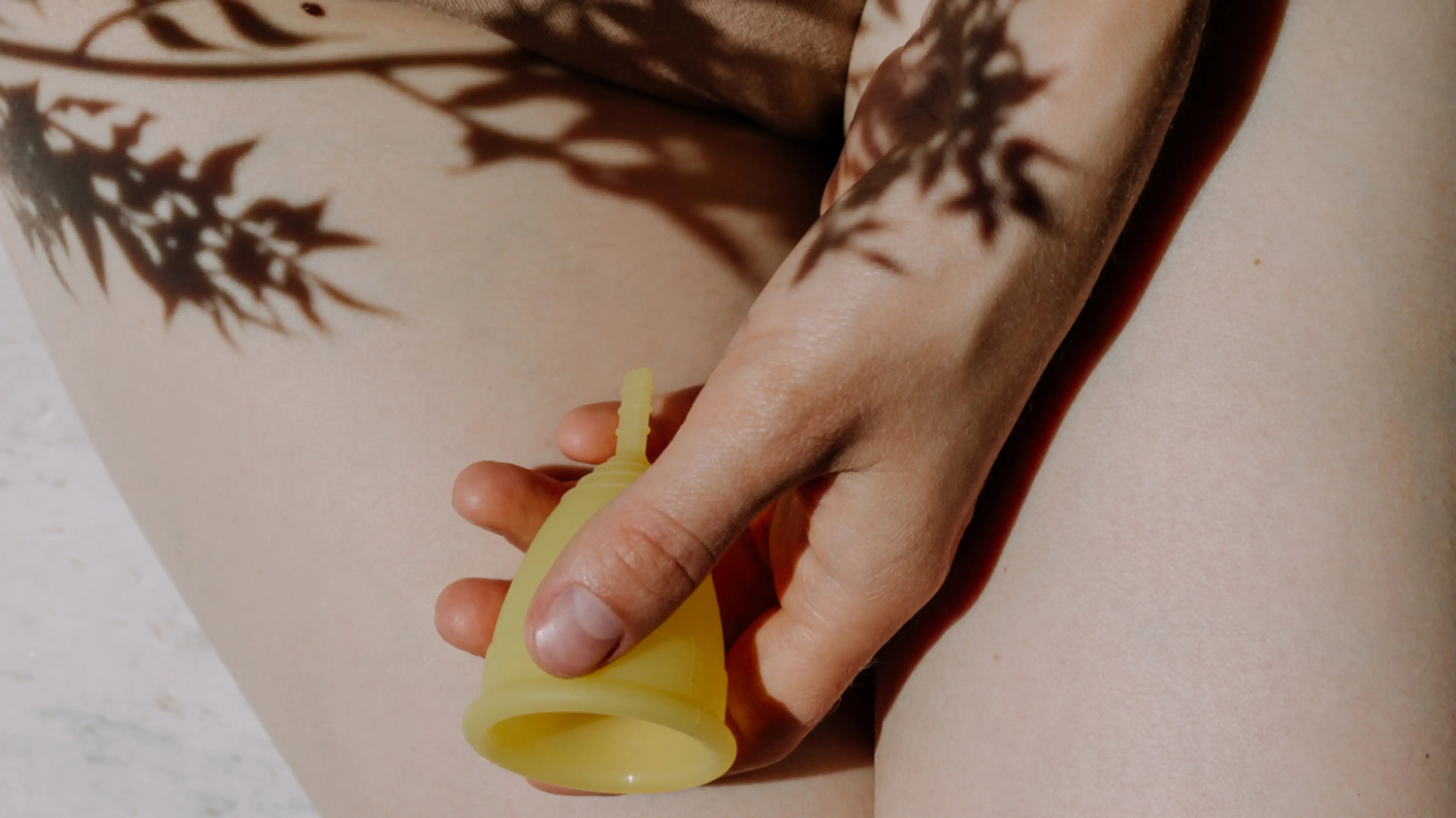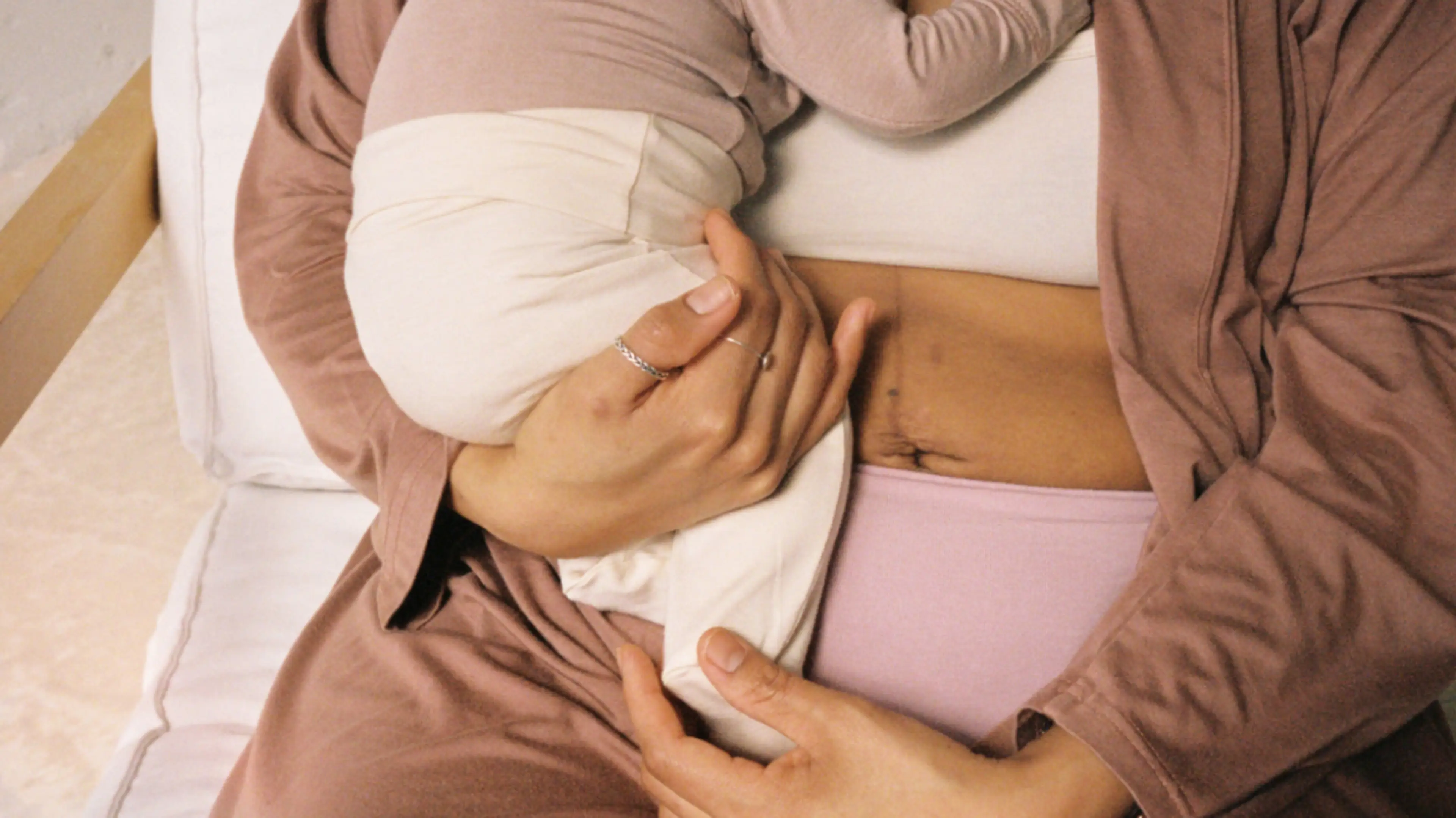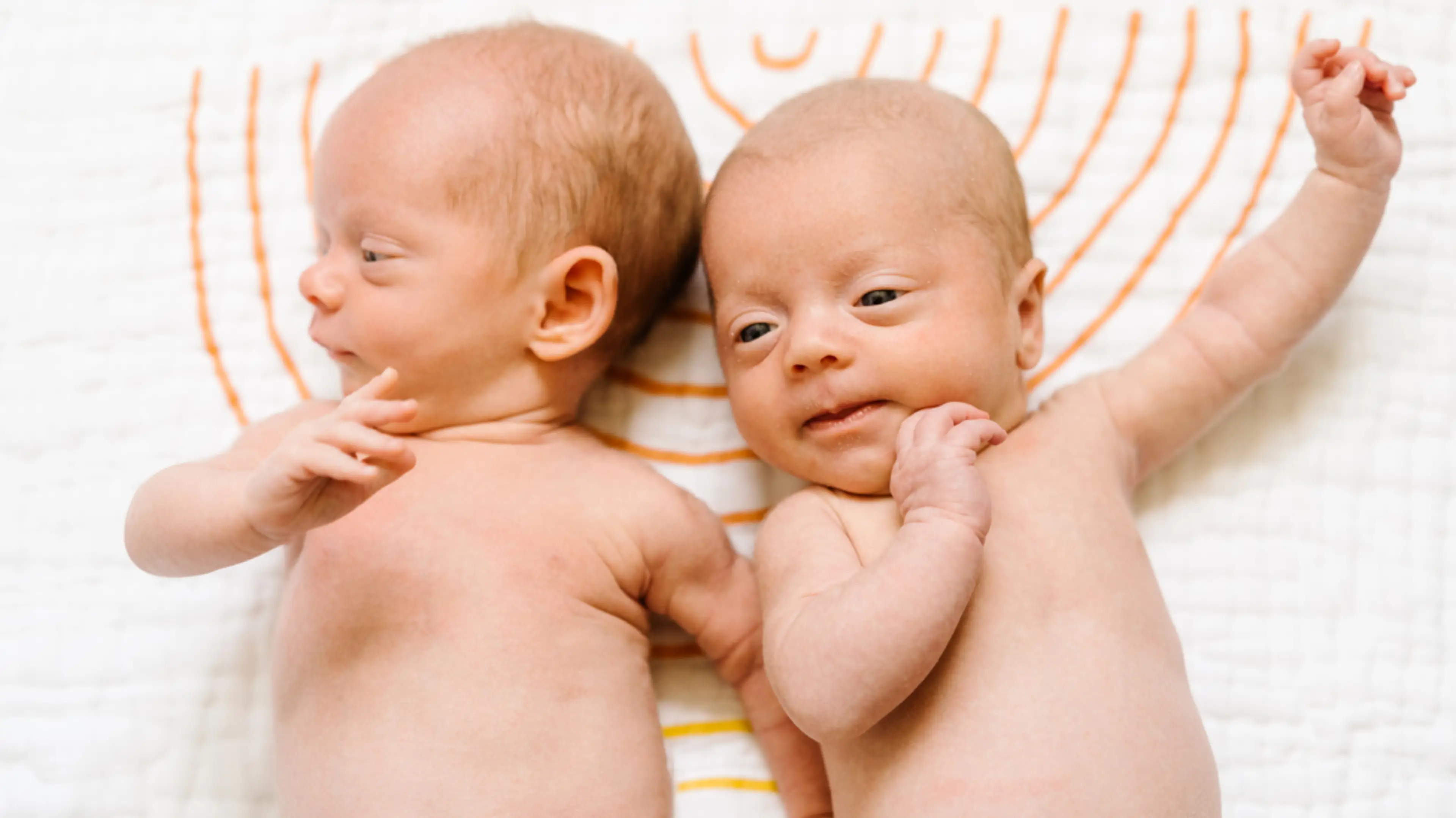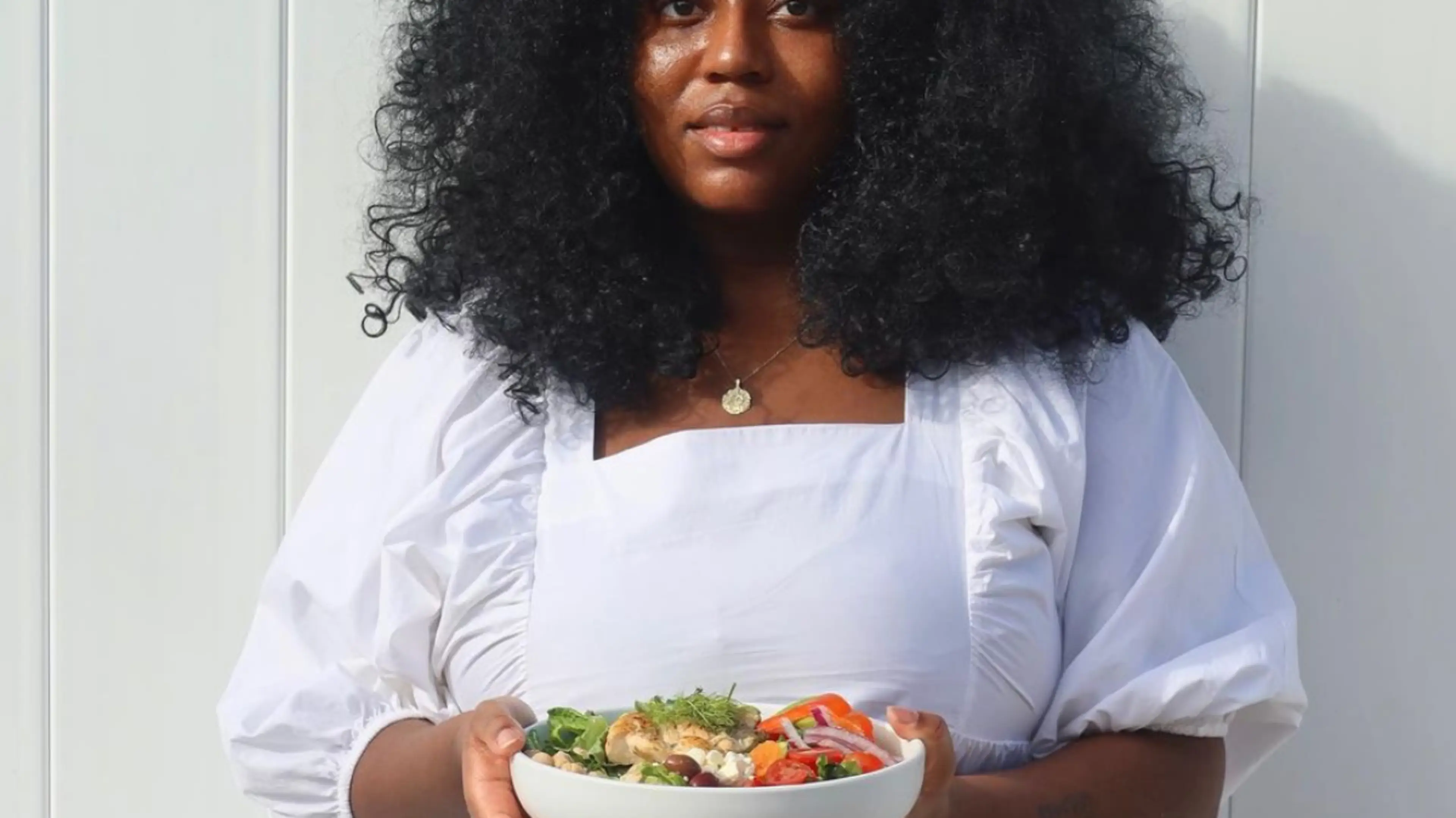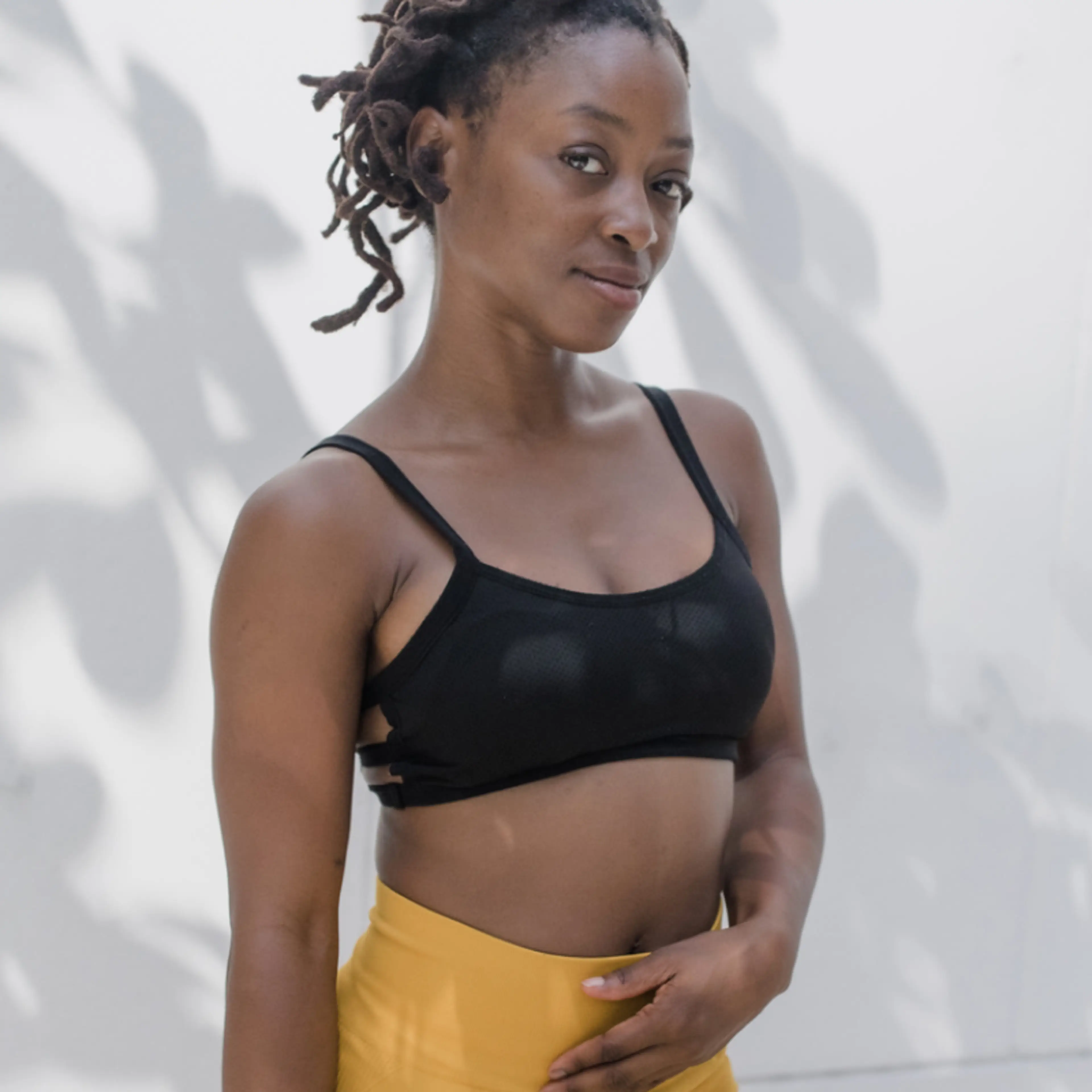TLDR: The first time you menstruate again can be a lot. Its timing is uncertain and may be affected by factors like breastfeeding, and your actual period may be different than you’re used to. Here’s everything you need to know to get ready for your cycle’s big return.
There are many difficulties when it comes to pregnancy: morning sickness, swollen ankles, hemorrhoids. But there are just as many benefits, like glowing skin, getting pampered, and connecting with your body.
Having a break from your period can be another reason to love pregnancy. For nine months, you don’t have to think about when it’s going to start or worry that you don’t have supplies while you’re running to the bathroom. Then your baby is born, and amid the sleep-feed-diaper routine, you may start to wonder when your period will pop back up again.
While there isn’t a hard date you can mark on your calendar, there are a few things you can learn about—when your cycle might return, what you can expect when it does, and if you can get pregnant before that happens.
“Getting your period back is probably low on the list of things you look forward to postpartum, but it's something you want to be prepared for,” says Dr. Marieme Mbaye, an ob-gyn in New York. “There's a lot of change happening during and after pregnancy and knowing what to expect can help make things that much less confusing and stressful during a time where you're probably already stressed.”
What's the Difference Between Lochia and Your Period?
It’s easy to confuse lochia1 with your period. Lochia is the name for the bleeding you experience four to six weeks after you give birth. Like a period, lochia is a mix of blood, uterine lining, and mucus. The main difference is that lochia only happens after birth to enable your body to get rid of the extra fluid, tissue, and blood it needed during pregnancy.
According to Dr. Mbaye, lochia can last up to eight weeks, though she notes that for most people it will be less than that.
“It might be an abrupt stop in bleeding, a very gradual decrease, or the bleeding may come and go in waves before going away completely. All of these patterns are normal,” she says.
Periods, on the other hand, generally come every month on a regular schedule when ovulation occurs, and only if the egg doesn’t get fertilized (aka you don’t get pregnant).
When Will You Get Your First Period After Baby?
After you have a baby and your postpartum bleeding stops, it’s natural to wonder when your period will return. The answer is: it depends on your body and your hormone levels.
Everyone will have their first postpartum period at different times, but a big variable for when your period comes back depends on whether or not you breastfeed.
If you’re not breastfeeding
If you‘re not breastfeeding, it’s normal to get your period as early as five weeks after birth2 . Dr. Mbaye says the timing can be “very unpredictable, and, of course, varies widely from person to person.”
She notes that your period “can come back within the first six weeks postpartum since ovulation is only suppressed for the first 4-6 weeks in most cases.” Regardless of whether you breastfeed or not, by six months your periods should be back to a more consistent pattern.
If you’re exclusively breastfeeding
If you’re exclusively breastfeeding, your period likely will take longer to come back. (Exclusively breastfeeding can also mean exclusively pumping or a combination of breastfeeding and pumping.)
The earliest you may see your postpartum cycle return is at about 10 weeks. However, some women don’t get their periods until they stop nursing.
“For those who breastfeed/pump exclusively, ovulation can be suppressed for up to 24 weeks, so it's very normal in those cases for periods not to return until six months or later,” says Dr. Mbaye.
The reason for the delay is prolactin, the hormone responsible for the development of your milk glands during pregnancy and for helping with your production of milk after birth. This same hormone can inhibit the hormones that promote ovulation.
If you’re partially breastfeeding
If you breastfeed and formula feed your baby, your period will likely come back around six weeks or later. Partially breastfeeding can also include when your baby starts to eat solid food, around the six-month mark. Many women will get their periods back around this time because they’re not nursing as often.
These timelines are a loose guideline—remember that everyone is different. “Postpartum is a completely variable time,” Dr. Mbaye says. “I've seen people get their first period as early as four weeks postpartum and as late as over a year after giving birth.”
As always, if you have any concerns about your timeline, talk to your doctor.
Do Postpartum Periods Affect Milk Supply?
If you’re breastfeeding, you may notice slight changes in your milk supply when you do get your period. This drop in supply is due to the increase in hormones associated with your ovulation and period. Usually, this drop only lasts for a couple of days, and then you’ll be back to normal.
Your changing hormones also can alter the way your milk tastes, which may make your baby a little fussy during this time. Dr. Mbaye notes that the change in the taste only happens during your period, and adds that while some babes will be fussy about the feed during that first period, “once the period is done, the milk will return to its normal flavor and amount. With the next period, most babies will settle down and be used to the change in taste.”
Generally, you can nurse as usual while you have your period, though if you happen to notice a dip in your supply, you can increase your milk production with certain foods, and make sure to drink plenty of water, since being dehydrated can sometimes be the cause of low supply. If you’re concerned about your milk supply, reach out to a lactation consultant.
How Is the First Postpartum Period Different?
After childbirth, your period may go back to normal, but it’s more common for you to establish a new normal. It all depends on your body and your hormones. Everything from the presence or severity of cramps to the length, heaviness, and duration of your cycle can get better or worse, shorter or longer after you give birth.
Typically, your first period after baby will come and go without any cause for concern. However, there are some symptoms you should watch for that could signal deeper issues like infection or other conditions. Call your doctor if you experience:
Heavy bleeding: soaking through a pad in an hour for consecutive hours
Continuously bleeding for more than seven days
Blood clots larger than a quarter
Sudden and severe pain when bleeding
Foul-smelling discharge
Sudden fever
Trouble breathing
Severe headache
If you’re concerned about your specific period cycles or any other symptoms, don’t hesitate to reach out to your ob-gyn. They will be able to answer your questions and run blood tests to check your hormone levels to get to the root of any lingering issues.
Are Pads or Tampons Safe To Use for Your First Postpartum Period?
If your period comes back before six weeks postpartum, it’s best to stick to wearing pads.
Whether you delivered vaginally or via C-section, your placenta releases itself from the uterus during birth, which essentially creates an internal wound. If you deliver vaginally, you may also have tears or cuts inside of the vagina. Tampons can irritate these tears or encourage bacteria to grow, causing an infection.
It’s best not to put anything inside of your vagina until your doctor has cleared you, so stick to pads for the first six weeks.
Can You Get Pregnant Before Your First Postpartum Period?
The short and frustrating answer is: maybe. If you’re ovulating, it’s possible to get pregnant. The tricky part is figuring out if that’s happening. While your body sends some signals that you’re ovulating (think breast tenderness, bloating, and more cervical mucus), with all of the postpartum changes you’re going through, it will be hard to know for sure if you’re ovulating until you get your first postpartum period.
Research on this topic varies, with reports of anywhere between 12 and 78 percent3 of women ovulating before they get their first postpartum period. Studies have determined that it’s more likely for a woman who’s not breastfeeding to ovulate than one who is, but breastfeeding isn’t a surefire contraceptive.
What Are Safe Contraceptives for Postpartum?
If you want to make sure you don’t get pregnant early in postpartum, you should have a plan for contraception. Remember that in the first six weeks, you should refrain from intercourse. Like using a tampon, bacteria can get inside your vagina during penetrative sex, and you may risk getting an infection. After you get the all-clear, talk to your ob-gyn about what options make the most sense for you.
Here are a few birth control options to consider:
Birth control pill
Oral contraceptives are 95 to 99 percent effective, and there are many different birth control pills on the market. Your doctor can help recommend the best one for you. If you’re breastfeeding, the recommendation will likely be a progestin-only mini pill4 .
IUD
Another contraceptive option is an IUD (intrauterine device), which is 98 to 99 percent effective. An IUD is a small T-shaped piece of plastic or copper inserted into the uterus. Some IUDs have the hormone progestin in them.
If you choose an IUD as your contraception, it must be placed by your doctor, and may be able to happen as early as your six-week postpartum check-up, although Dr. Mbaye says that in some cases, if you know you want an IUD, some hospitals allow doctors to place IUDs immediately after the delivery of the placenta. (Talk to your doctor ahead of time if you’re interested in this).
IUDs are effective immediately, and depending on which IUD you choose, they can generally stay in for up to eight years (the hormonal version) or 10 years (for the non-hormonal).
Condoms
If oral contraceptives and IUDs aren’t right for you, condoms are a good standby. Condoms are around 85 percent effective, a stat that gets higher when they are used properly (score one for sex ed). They’re also easily accessible, and you don’t have to visit a doctor or get a prescription to use a condom.
Cycle tracking
For some women, tracking cycles and ovulation is an effective way to prevent pregnancy. There are multiple ways to track ovulation—basal body temperature, cervical mucus, and ovulation tests. By learning your body’s cycle and tracking it on a calendar, you may be able to prevent pregnancy. But be cautious if you don’t want to get pregnant again right away.
“Since the fertile window can be up to six days, I always recommend avoiding sex for about a week (seven days) to be on the safe side,” says Dr. Mbaye. She adds an extra layer of caution if you’re nursing.
“I don't recommend fertility awareness methods for most people who are exclusively breastfeeding simply because of how unpredictable the first few cycles can be. Waiting until there've been at least three to four cycles and things are more predictable helps to avoid any surprises.”
If you decide to use this option, you may want to consider using condoms or another form of birth control as well to be extra cautious while your body’s rhythms return to a more regular postpartum pattern.
Pregnancy offers a break from your monthly periods but once your baby is here, be prepared for your postpartum period to be one of the many changes you are going through as you adjust to your new normal. Knowing what to expect and what factors, like breastfeeding, may affect your cycle’s return can help take away some of the guesswork so you can focus on more important things, like your swee baby.

